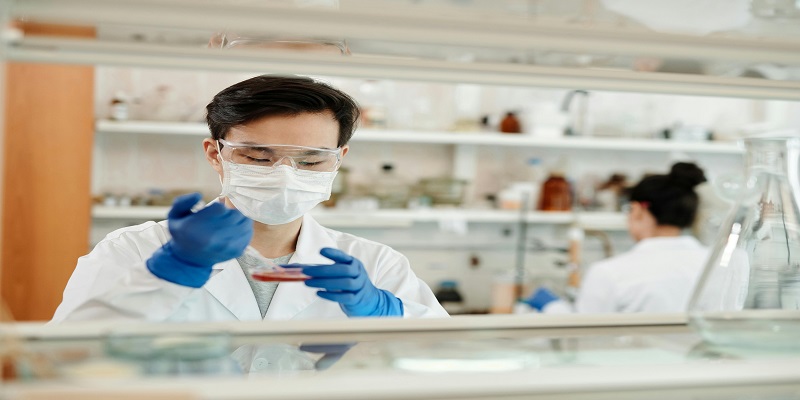Research and Laboratory Roles: An In-Depth Exploration

Research and laboratory roles hold significant importance. These roles are vital to advancing our understanding of the world and developing new technologies, treatments, and solutions to complex problems. The research and laboratory sector is multifaceted, encompassing various disciplines, from biology and chemistry to physics and engineering. Each discipline plays a crucial role in contributing to scientific knowledge and innovation.
Understanding Research Roles
Research roles are foundational in the scientific community. They involve systematic investigation to establish facts, principles, or new knowledge. Researchers often work in academic, governmental, or private institutions, focusing on theoretical or applied research. These roles can be broadly classified into several categories, each with distinct responsibilities and objectives.
Academic Researchers
Academic researchers primarily work in universities or colleges. Their main objective is to contribute to the body of scientific knowledge. These researchers conduct experiments, publish papers, and often teach students. Their work is typically funded by grants from government agencies, private foundations, or industry partnerships. Academic research is often driven by curiosity and the pursuit of knowledge rather than immediate commercial applications.
Industry Researchers
Industry researchers focus on applied research with a direct commercial application. They work in various sectors, including pharmaceuticals, biotechnology, engineering, and information technology. Their primary goal is to develop new products, improve existing ones, or discover new methods to enhance productivity. Industry researchers often work under tight deadlines and are driven by the need to bring innovations to market quickly.
Government Researchers
Government researchers work in national laboratories, research institutions, or regulatory agencies. Their work often involves public health, environmental protection, national security, and policy development. Government research aims to address societal challenges and improve public welfare. These researchers may also be involved in setting standards, developing regulations, or providing scientific advice to policymakers.
Non-Profit and NGO Researchers
Researchers in non-profit organizations or NGOs often focus on social, environmental, or humanitarian issues. Their research is aimed at driving policy change, raising awareness, or finding solutions to global challenges such as poverty, climate change, or disease. These roles often require interdisciplinary knowledge and collaboration with various stakeholders, including governments, private sector entities, and local communities.
Key Skills Required in Research Roles
Research roles demand a unique set of skills and competencies. These skills vary depending on the specific field of research but generally include critical thinking, problem-solving, data analysis, and communication.
Analytical Skills
Analytical skills are essential for researchers. They must be able to interpret data, identify patterns, and draw meaningful conclusions from their findings. This requires a strong understanding of statistics and data analysis techniques, as well as the ability to use specialized software and tools.
Critical Thinking
Critical thinking is the ability to assess information objectively and make reasoned judgments. Researchers must evaluate existing literature, identify gaps in knowledge, and design experiments to test hypotheses. This skill is crucial in ensuring that research is conducted rigorously and produces valid results.
Communication Skills
Communication is key in research. Researchers must be able to explain their findings to various audiences, including other scientists, policymakers, and the general public. This involves writing research papers, presenting at conferences, and sometimes engaging with the media or public forums. Good communication skills are also important for securing funding and collaborating with other researchers.
Technical Skills
Depending on their field, researchers may need specific technical skills. For example, a biologist might need expertise in molecular biology techniques, while an engineer might require proficiency in computer-aided design (CAD) software. Staying updated with the latest technological advancements is crucial for success in research roles.
Exploring Laboratory Roles
Laboratory roles are closely related to research but focus more on the practical aspects of scientific investigation. Laboratory professionals conduct experiments, analyze samples, and ensure the proper functioning of laboratory equipment. These roles are essential in translating theoretical research into tangible results.
Laboratory Technicians
Laboratory technicians play a vital role in supporting research and clinical laboratories. They are responsible for preparing experiments, maintaining equipment, and recording data. Laboratory technicians often work under the supervision of researchers or lab managers, ensuring that experiments are conducted accurately and efficiently. Their work is crucial in ensuring the reliability of experimental results.
Laboratory Managers
Laboratory managers oversee the daily operations of a laboratory. They are responsible for managing staff, maintaining equipment, ensuring compliance with safety regulations, and overseeing budgets. Laboratory managers play a critical role in ensuring that the laboratory operates smoothly and that all research activities are conducted according to established protocols.
Clinical Laboratory Scientists
Clinical laboratory scientists, also known as medical technologists, work in healthcare settings. They analyze blood, tissue, and other bodily fluids to diagnose diseases and monitor patient health. Their work is essential for patient care, as it provides the data needed for doctors to make informed decisions about treatment. Clinical laboratory scientists must be highly skilled and knowledgeable in various diagnostic techniques and laboratory practices.
Research Assistants
Research assistants support researchers by performing a variety of tasks, including data collection, literature reviews, and experiment setup. They play a crucial role in ensuring that research projects are conducted efficiently and effectively. Research assistants often work closely with senior researchers, gaining valuable experience and contributing to the success of research projects.
The Importance of Safety and Ethics in Laboratory Roles
Safety and ethics are paramount in laboratory roles. Working in a laboratory involves handling hazardous materials, using complex equipment, and conducting experiments that could have significant implications. Therefore, strict safety protocols and ethical guidelines are essential to protect both the laboratory personnel and the broader community.
Laboratory Safety
Laboratory safety is a top priority in any research or clinical setting. This involves following proper procedures for handling chemicals, biological materials, and radioactive substances. Laboratory personnel must be trained in using safety equipment, such as fume hoods and biosafety cabinets, and must follow protocols for disposing of hazardous waste. Regular safety audits and inspections are necessary to ensure compliance with safety regulations.
Ethical Considerations
Ethical considerations are also critical in laboratory work. This includes ensuring the humane treatment of animals in research, obtaining informed consent from human subjects, and conducting research with integrity and transparency. Ethical lapses can lead to significant consequences, including loss of public trust, legal action, and harm to individuals or communities. Researchers and laboratory professionals must adhere to ethical guidelines set by professional organizations and regulatory bodies.
The Future of Research and Laboratory Roles
The future of research and laboratory roles is shaped by technological advancements, societal needs, and global challenges. As we move into an era of rapid scientific progress, the demand for skilled researchers and laboratory professionals is expected to grow.
Technological Advancements
Technological advancements, such as artificial intelligence, genomics, and nanotechnology, are revolutionizing research and laboratory roles. These technologies enable more precise experiments, faster data analysis, and new avenues of exploration. In addition, Researchers and laboratory professionals must stay abreast of these developments to remain competitive in their fields.
Interdisciplinary Collaboration
The complexity of global challenges requires interdisciplinary collaboration. Researchers from different fields must work together to solve problems such as climate change, pandemics, and food security. Additionally, This trend is expected to continue, leading to more collaborative research efforts and a greater emphasis on teamwork in laboratory settings.
The Role of Education and Training
As the demand for research and laboratory professionals grows, so does the need for specialized education and training. Universities and training institutions must adapt their curricula to include the latest technological advancements and interdisciplinary approaches. Furthermore, Continuous professional development is also crucial for researchers and laboratory professionals to keep their skills up to date.
Conclusion
Research and laboratory roles are integral to advancing scientific knowledge and addressing global challenges. These roles require a unique set of skills, including critical thinking, technical expertise, and a commitment to safety and ethics. Thus, As the world continues to evolve, so will the demands on researchers and laboratory professionals. However, By staying informed and adaptable, these professionals will continue to play a crucial role in shaping the future of science and technology.





